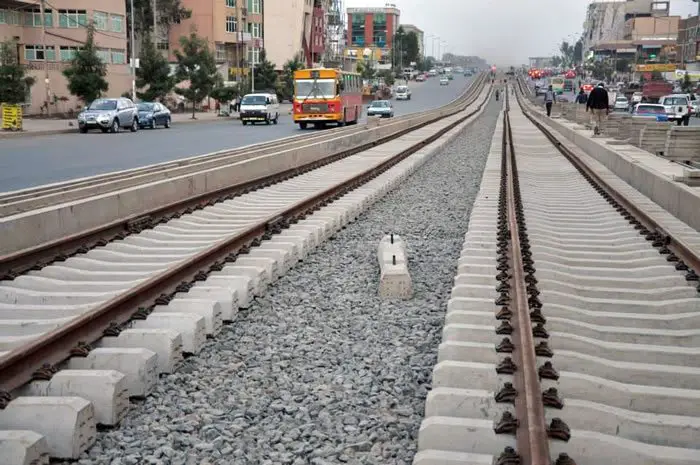The Ethiopian government is headed for a significant economic advancement after it landed a gigantic financial boost from two European banks to build US$1.7bn Ethiopian railway project.
The two European banks namely Credit Suisse and the Turkish export and import bank (ExIm bank) have agreed to finance construction of the 400 km railway line that stretches from Woldia to Awash which is part of the lengthy Mekelle to Djibouti’s Tajura port railway line.
Credit Suisse has been in the forefront in convincing and organizing the European banks to finance the constructions and according to some financial experts, the European banks contract to finance projects in Ethiopia will have a huge significance for the country because such gestures haven’t been seen in the country’s recent history.
The banks are expected to finance 85% of the project cost and the remaining finance is expected to be covered by the Ethiopian government.
The Mekelle-Djibouti railway line construction is divided into three parts. The first leg of the construction which stretches for 260 Kms from Mekelle to Woldia is to be constructed by the Chinese construction company CCCC with US$1.5bn finance from the Chinese ExIm bank. The second one being the Woldia-Awash line mentioned above and for the third and final leg of the construction from Awash to Tajura port of Djibouti finance has not been yet been secured.
Currently Ethiopia is embarking on a 5,000 km long rail network and this is projected to provide 300,000 jobs in construction and cost US$336m annually for the next 5 years. The system will handle 6 million tonnes of freight. So far the government of India has given US$300m for the Mekelle-Djibouti rail line.
The gauge of the new railway will be 1,435 mm (4 ft 8 1⁄2 in), as there is no point in increasing the size of the network fourfold on an obsolete gauge. There is also standard gauge proposed changes in adjacent countries, besides connecting with this gauge in northern Africa, the Middle East, Europe and China, among other areas.

Leave a Reply